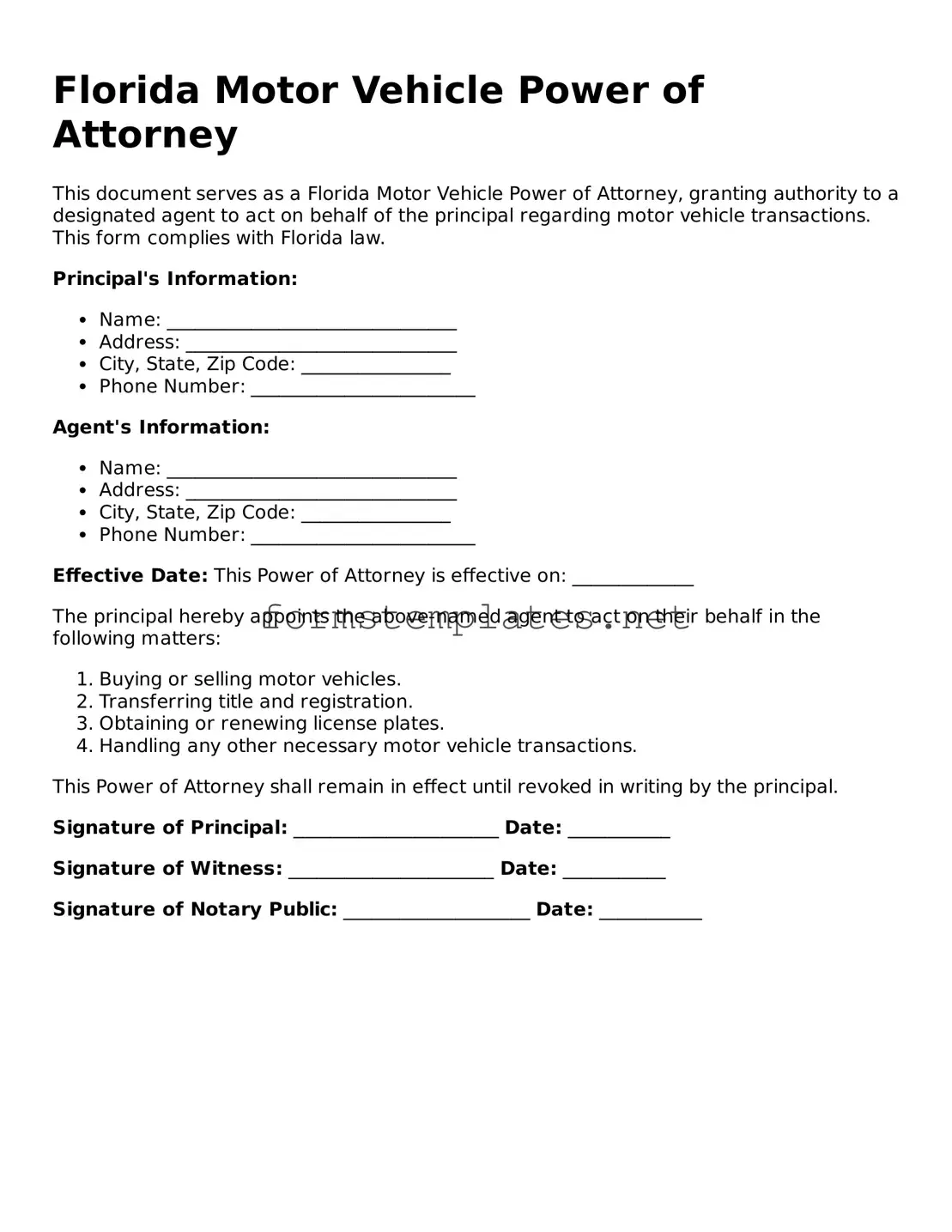Attorney-Approved Florida Motor Vehicle Power of Attorney Template
The Florida Motor Vehicle Power of Attorney form allows an individual to designate another person to handle specific vehicle-related tasks on their behalf. This can include signing documents for vehicle registration, title transfers, and other important transactions. Understanding this form can simplify the process of managing your vehicle affairs, especially when you can't be present.
Open Editor Now

Attorney-Approved Florida Motor Vehicle Power of Attorney Template
Open Editor Now

Open Editor Now
or
⇓ PDF Form
Your form still needs attention
Finalize Motor Vehicle Power of Attorney online — simple edits, saving, and download.